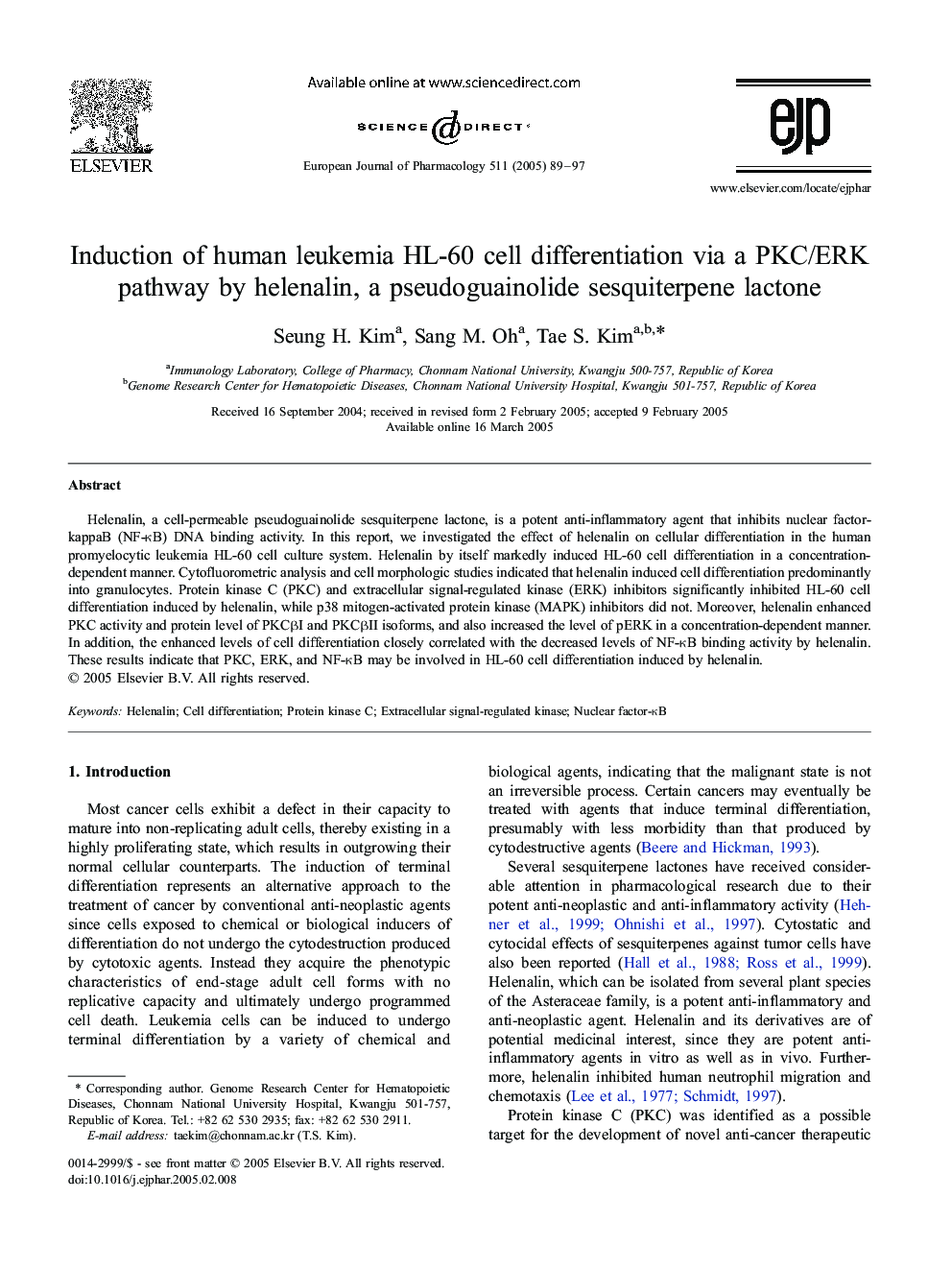| Article ID | Journal | Published Year | Pages | File Type |
|---|---|---|---|---|
| 9921421 | European Journal of Pharmacology | 2005 | 9 Pages |
Abstract
Helenalin, a cell-permeable pseudoguainolide sesquiterpene lactone, is a potent anti-inflammatory agent that inhibits nuclear factor-kappaB (NF-κB) DNA binding activity. In this report, we investigated the effect of helenalin on cellular differentiation in the human promyelocytic leukemia HL-60 cell culture system. Helenalin by itself markedly induced HL-60 cell differentiation in a concentration-dependent manner. Cytofluorometric analysis and cell morphologic studies indicated that helenalin induced cell differentiation predominantly into granulocytes. Protein kinase C (PKC) and extracellular signal-regulated kinase (ERK) inhibitors significantly inhibited HL-60 cell differentiation induced by helenalin, while p38 mitogen-activated protein kinase (MAPK) inhibitors did not. Moreover, helenalin enhanced PKC activity and protein level of PKCβI and PKCβII isoforms, and also increased the level of pERK in a concentration-dependent manner. In addition, the enhanced levels of cell differentiation closely correlated with the decreased levels of NF-κB binding activity by helenalin. These results indicate that PKC, ERK, and NF-κB may be involved in HL-60 cell differentiation induced by helenalin.
Keywords
Related Topics
Life Sciences
Neuroscience
Cellular and Molecular Neuroscience
Authors
Seung H. Kim, Sang M. Oh, Tae S. Kim,
